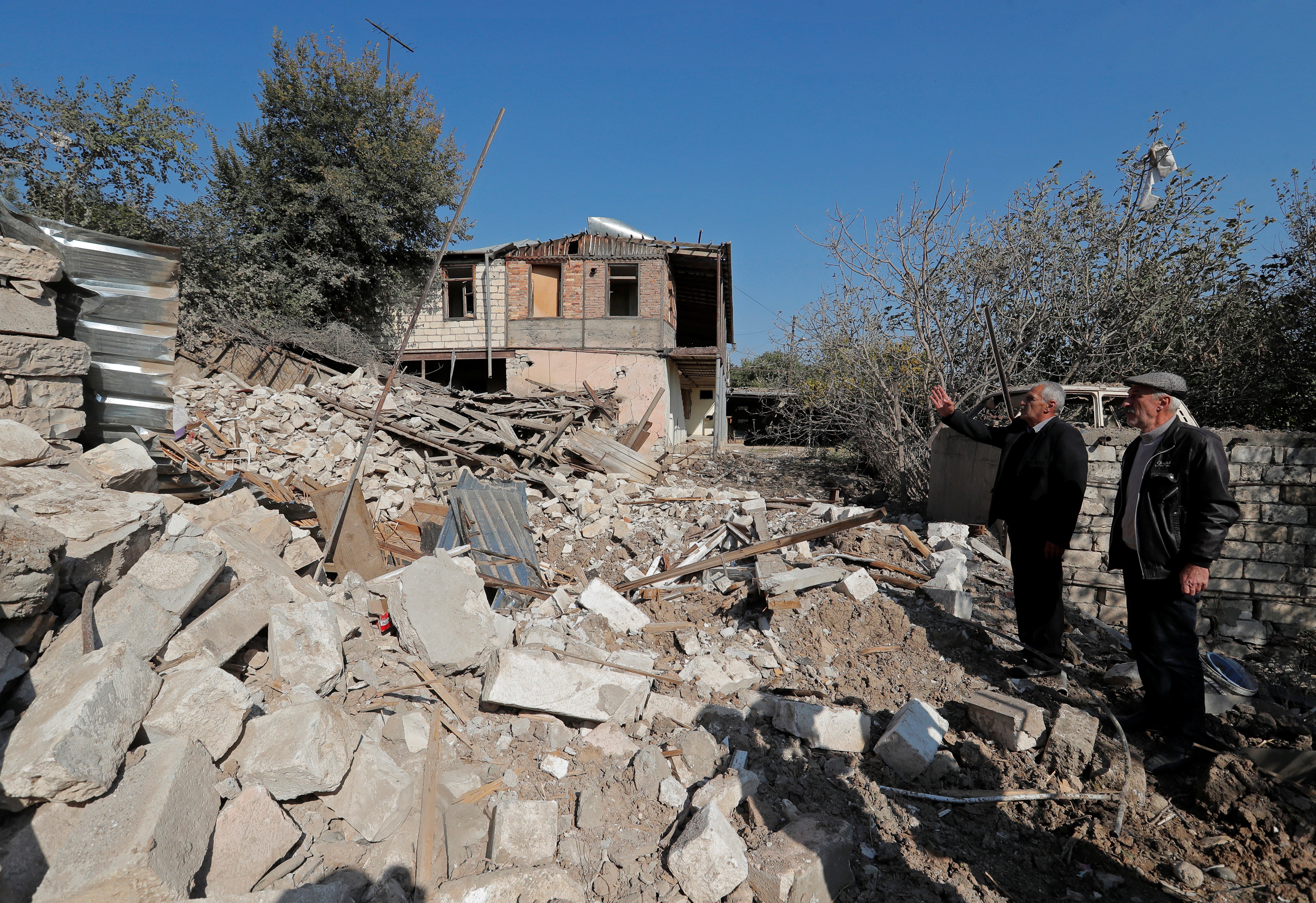Reluctant Russia offers to send peacekeeping ‘monitors’ to Nagorno-Karabakh
Ceasefire agreed on 9 October is not holding

Russia has offered to send monitors to the disputed territories of Nagorno-Karabakh to police a five-day ceasefire deal that failed almost as soon as it was signed.
Speaking with journalists on Wednesday, Russian foreign minister Sergei Lavrov said the warring parties of Azerbaijan and Armenia urgently needed a “ceasefire verification” mechanism.
“We believe it would be right if they were our observers, but it is up to both parties to make a final decision,” he said.
The Russian diplomatic intervention comes amid a major escalation in fighting, now believed to have killed at least 600 people.
Overnight, Azerbaijan confirmed it had struck missile systems inside Armenia, claiming they had been aimed at Azerbaijani cities. Armenia denied the allegations but said it now reserved the right to target similar installations in Azerbaijan.
Baku’s admission that it was striking targets inside Armenia — rather than Armenian-controlled territories inside internationally recognised Azerbaijan – was significant in that such attacks would logically fall under a military pact between Russia and Armenia requiring a common response.
So far, Russia has been reluctant to support its notional ally throughout two weeks of increasingly bloody reverses on the battlefield. Moscow’s difficult relations with prime minister Nikol Pashinyan seem to have hampered the Armenian cause.
At his daily conference on Wednesday, Kremlin spokesman Dmitry Peskov limited comments to expressing “concern” about reports of a direct strike. The information still needed to be verified, he said.
Russia’s relative detachment contrasts strongly with Turkey, which has vowed to support Azerbaijan “on the battlefield or negotiating table.”
Turkish drones – alongside Israeli technology – have been a major factor in switching momentum decisively to the Azerbaijani side.
In his interview, foreign Minister Lavrov was critical of Ankara’s support.
“There is no secret here, we cannot agree with statements that a military solution to the conflict is possible and admissible,” he said.
But the obvious failure of the Russian-brokered ceasefire agreement of 9 October underlined the extent to which the balance of power in the region is switching from Moscow to Ankara.
Such considerations would also suggest that the Azerbaijani side might not be so enthusiastic about embracing the idea of Russian boots on the ground.
On Tuesday, authorities in the Armenian-backed enclave reported that the number of casualties since fighting began on 27 September amounted to nearly 600. The real number is likely to be higher, with military authorities reluctant to give a true picture of losses.
Azerbaijan has not disclosed the numbers of its military dead, but says 42 of its civilians have been killed in the last two weeks.
Join our commenting forum
Join thought-provoking conversations, follow other Independent readers and see their replies
Comments

Bookmark popover
Removed from bookmarks